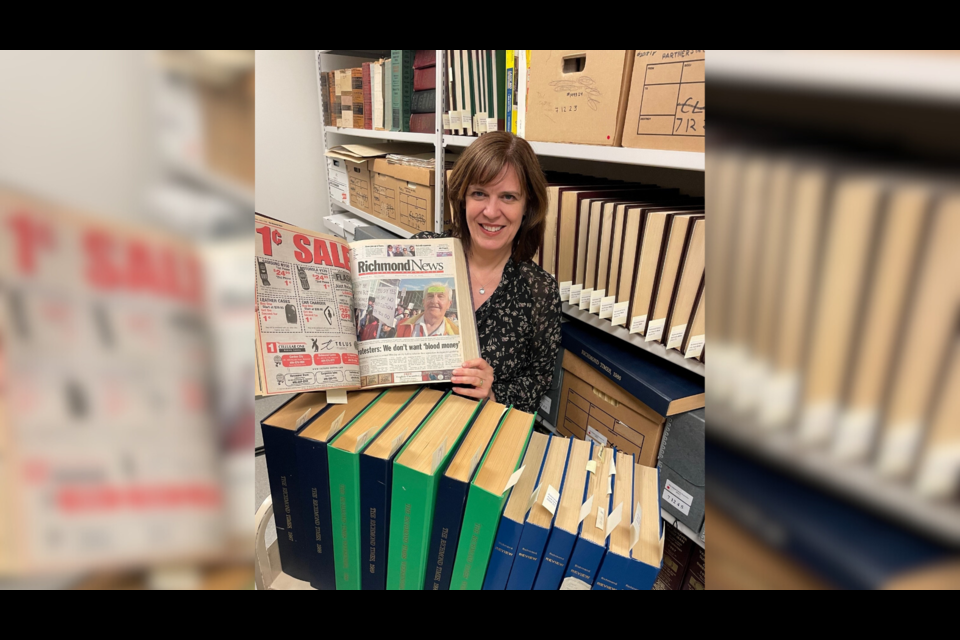When the Richmond News recently popped by the City of Richmond Archives, a current city councillor, Bill McNulty, was thumbing through old copies of the Marpole-Richmond Review, working on a book about the history of Sea Island.
Historians who approach the archives during their research often start with newspaper clippings on their subject as a launching point, and then move on to traditional archival sources, explained city archivist Dovelle Buie.
Other historians start with other sources and then come to the newspapers to fill in the gaps. In any event, newspapers are an “unbelievable resource for research.”
While official city records will give the official account, newspapers “fill in the gaps,” Buie said, and reflect a time in history. They give a glimpse into society, of “ordinary history” and especially give airtime to historically marginalized voices.
Newspapers help us understand the past, she added, how people thought and acted. Sometimes, however, there’s a need for a “content warning,” as the language and content could be offensive or emotionally harmful.
“It’s incredibly revealing to see how society was in different decades and time periods and you can see how things have changed,” Buie said.
Newspapers in the archives are used by a wide variety of people, from community and environmental groups, to local businesses, the city, property researchers, teachers and students, artists and family historians.
Some browse, others do targeted research, she added.
Switching to digital has its pros and cons, says Archivist
The Richmond News recently donated bound copies of its archived newspapers to the City of Richmond Archives as the paper moves to a digital-only news delivery.
Online-only newspapers — like the Richmond News starting in December — aren’t the only records that are “born digital,” Buie said, referring to electronic documents that never exist as physical copies, rather they only exist only in the digital world.
Telephone directories, once a primary source of archival material, have long been digital only.
Buie sees positive and negative sides to newspapers moving to digital only.
On the one hand, newsprint deteriorates quickly and it’s geographically located in one place. Digitalization, however, has allowed more access to information.
But there are issues with online as well, such as media obsolescence, software changes and migration to newer systems.
“You can argue pros and cons on both sides,” Buie said.
At any rate, community newspapers are important because “you’re not going to find it anywhere else.”
Newspaper clippings a common request
At the archives, many of the records donated include clippings from newspapers. A scrapbook from 1947 to 1973 from the Imperial Order of the Daughters of the Empire includes dozens of clippings about the society and its members that were published in local newspapers.
There seems to be a prestige to being in the newspaper, Buie said.
A typical request to the archives is someone saying they were on a sports team in 1987 and wanted to know if there were any clippings about the team in the local newspapers.
“If you’re in the newspaper, it’s a meaningful thing to people, (it gives you) a sense of belonging in a community,” Buie said.
She added the comparable phenomenon today might be posting things on social media and getting likes and shares.
Buie hopes digital newspapers will in the future keep “preserving and saving” PDFs of digital copies so they stay accessible to the public, something she thinks media companies should make sure happens.
“The benefit to the digital copy is going to be searching, sharing, zooming in, more environmentally friendly, but the challenge is, is it going to be accessible to everybody,” she added.
Got an opinion on this story or any others in Richmond? Email your thoughts or story tips to [email protected].



